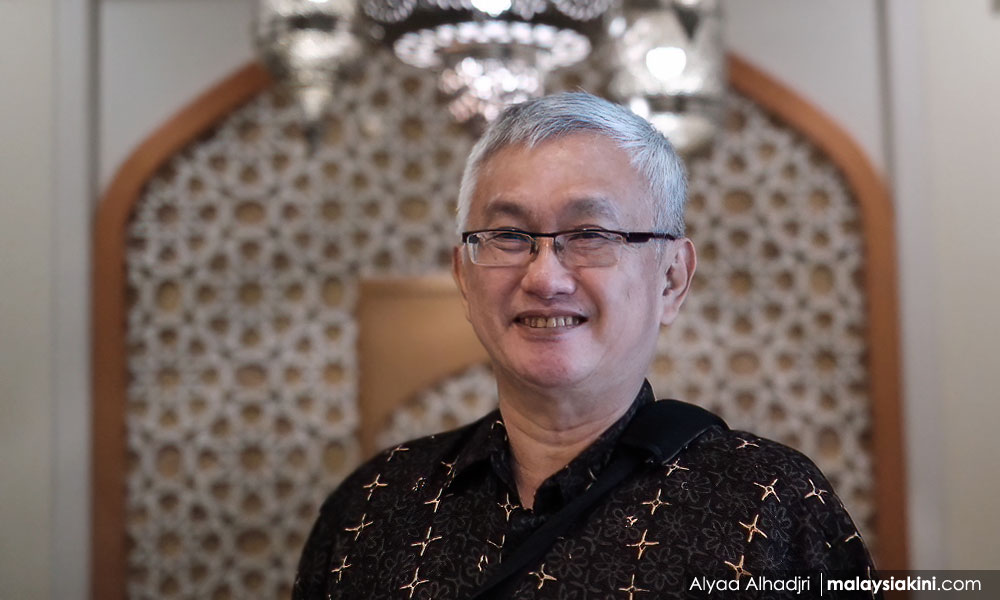The elimination of the Maid Online System (SMO) was hailed by some quarters as the right move to end trafficking and forced labour in the sector.
This was said to have put a stop to the direct hiring of Indonesian domestic workers by unregistered recruitment companies.
“The SMO was favoured by many recruitment companies that were not registered with the government because it allowed them to enter this business without any commitment to the guidelines and regulations,” Zarina Ismail said.
Zarina, who is the president of the National Association of Human Resources Malaysia (Pusma), said registered agencies usually took about two to three months to hand a domestic worker over to her new employers.
However, she said, the SMO allowed them to be placed with employers as quickly as the “next day”.
“The SMO allowed domestic workers to enter the country on a travel visa like the MyTravelPass and recruitment companies would bring them in and hold them until they found an employer.
Representing over 1,000 private employment agencies, Pusma members were required to apply for a Calling Visa for domestic workers, which would engage only legitimate agencies in Indonesia that would ensure all the workers were trained and aware of what was required of them.
On Jan 25, Zarina told Malaysiakini that the SMO perpetuated practices that were contradictory to the human rights of workers.
This is because, she said, there was no redress for workers whose rights had been violated, as well as no fair solutions for employers who had been cheated.

Zarina was responding to new processes that will be introduced in the revised Memorandum of Understanding (MoU) between Malaysia and Indonesia for the Employment and Protection of Domestic Workers, which were revealed yesterday by the Indonesian Ambassador to Malaysia, Hermono.
‘Make clauses legally binding’
Migrant rights organisation Tenaganita executive director Glorene Das said the SMO system overlooked many necessary guidelines for the protection of domestic workers.
Glorene said this was how many women were left vulnerable to forced labour elements.
“At least 90 percent of the cases we handled were undocumented due to the neglect to renew their work permit and most of them came through the SMO process.
“However, some had come through recruitment agencies as well, so our concern would be the implementation of these clauses.
“The previous MOUs have had similar clauses too, but failed to protect the workers due to the lack of labour officers for inspection purposes,” she said.

Glorene stressed that the MoU provisions were not binding in Malaysia, so the question of how to make them binding remained to be answered.
What was in the previous ‘Aku Janji’
Fellow migrant rights activist and country representative of Migrant Care, Alex Ong, applauded the elimination of the SMO.
Ong further suggested that the system be abolished for workers coming into Malaysia from any country.
Having raised concerns last week over the manner by which the Protocol Amending the MoU 2011 was abolished, Ong went on to welcome the reintroduction of the “Aku Janji” or mandatory undertaking, in the MoU being negotiated.
It was also revealed by Hermono yesterday that the MoU would feature two new versions of the “Aku Janji” – one to be undertaken by private employment agencies and another by employers.
Ong called it a “positive approach” to create a protection mechanism and agreed that the MoU clauses needed to be amended into labour laws, explaining that “for the time being, they could be made binding by ministerial order”.

He also shared several key points in the previous “Aku Janji” undertaken by private employment agencies. This was to give an idea of what terms to expect in the new “Aku Janji”:
To not exceed recruitment costs set out in the MoU;
To replace with a new domestic worker or compensate the employer for a domestic worker who has run away, was ‘unfit’ according to the protocol 2011;
To ensure the employer gives one day off per week to the domestic worker;
To ensure that the employer has the written consent of the domestic worker if they should want to retain her passport for safekeeping;
To ensure that the employer sets up a bank account in the name of the domestic worker for payment of wages; and
To abide by all the conditions, rules and instructions set by the Malaysian Immigration Department and the Labour Department of Peninsular Malaysia.




No comments:
Post a Comment
Note: Only a member of this blog may post a comment.